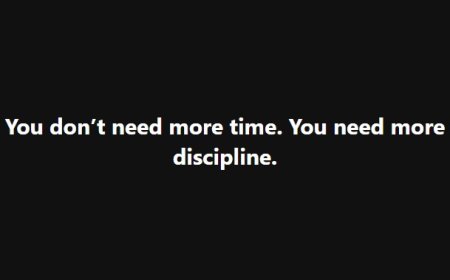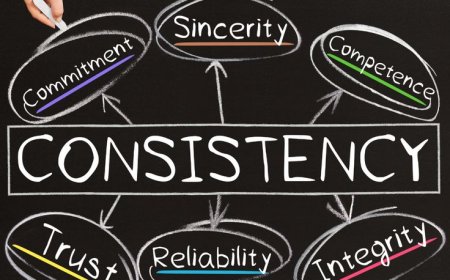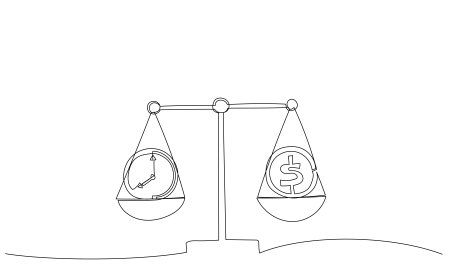Are You a Manager or a Leader? The Questions Will Provide a Clear Answer
Understand the difference between a manager and a leader through key questions that reveal your true management style and approach to guiding your team effectively.

Did you ever think about who is the one that gives the team direction? In various situations, a person can be called a manager, a supervisor, a director, or a coach. Still, the Manager part and the Leader part in the office are two completely different things.
Often, the meaning of these two words is mixed up, but in reality, they are very much opposites! Realizing the distinction is the initial move to get the most out of any team. One concerns duties and regulations, while the other concerns inspiring and motivating people and having a vision.
We have devised a straightforward yet impactful set of questions—similar to a mini quiz on whether you are a leader or a manager—to assist you in determining your style!

What is Leadership vs Management? The Core Idea
The simplest method to realize what leadership is versus management is to keep this in mind:
-
A Manager oversees. They are the person who ensures that the task is performed accurately, promptly, and under the established budget. They work with the "how" and the "when."
-
A Leader creates. They are the one who motivates individuals to perform actions that they never thought could be done. They manage the "why" and the "what."
Both of them are necessary for any company's success, but they require different skill sets. Let us now dive into the side of the leadership skills vs management skills.
The Ultimate Test: 10 Questions to Discover Your Style
Think about your actions in situations where you have taken the lead, like school projects, sports teams, or simply helping your friends with planning an outing. Go to each question and determine if you are more tamed by Answer A (Manager) or Answer B (Leader).
The choices you made indicate where your inherent leadership vs management style positions you.
Category 1: Focus and Vision
|
Question |
Answer A (Manager) |
Answer B (Leader) |
|---|---|---|
|
1. When starting a project, what do you focus on first? |
The Rules and how to follow the existing plan perfectly. |
The Vision is showing people why this project matters. |
|
2. How do you see your team’s long-term goal? |
Completing the current tasks and hitting quarterly targets. |
Creating a brand new future or changing the industry. |
Category 2: Dealing with People
|
Question |
Answer A (Manager) |
Answer B (Leader) |
|---|---|---|
|
3. How do you motivate someone who is working slowly? |
I use the authority of my position to remind them of the deadline and the rules. |
I talk to them about their personal goals and inspire them with the project's purpose. |
|
4. When someone makes a big mistake, what do you do? |
I focus on finding the cause of the error and ensuring the proper procedure is followed next time. |
I focus on what we learned from the failure and encourage them to try a different approach. |
|
5. Do you prefer to have a large group of people following you? |
Not necessarily. I prefer a small group of direct reports who do exactly what is requested. |
Yes! I want to inspire many people and create a team of committed followers. |
Category 3: Decision Making and Change
|
Question |
Answer A (Manager) |
Answer B (Leader) |
|---|---|---|
|
6. How do you feel about change and new ideas? |
I like consistency. I stick to what works and is reliable from the past. |
I thrive on change! I love finding new ways to do things, even if it's risky. |
|
7. How do you make important decisions? |
I rely on data, reports, and existing company policies to guide me. |
I rely on my intuition, gut feeling, and long-term vision for the future. |
Category 4: Personal Style
|
Question |
Answer A (Manager) |
Answer B (Leader) |
|---|---|---|
|
8. Do you like your team members to challenge your ideas? |
Not often. It is better when they cooperate and follow directions smoothly. |
Yes! I encourage healthy disagreement because it leads to better ideas. |
|
9. How do you measure your own success? |
By how efficiently my team finishes tasks and stays within the budget. |
By how many people on my team grow, take risks, and become leaders themselves. |
|
10. When people work for you, what are they giving you? |
They are giving me their time and skills to complete the work I assign. |
They are giving me their loyalty and commitment to the vision we share. |
Scoring the Quiz: Manager vs. Leader
Your choices have indicated the distribution of your intrinsic leadership and management style.
Mostly 'A' Answers (6+): You are a Manager.
You are an expert organizer! You take a methodical approach to the entire process. You are the person who guarantees that every part of the project is executed perfectly and punctually. Your management skills cover planning, organizing, budgeting, and establishing tight timelines.
Real-Life Example: An effective Manager is comparable to a Chief Operating Officer (COO). When Tim Cook took over Apple, he made supply chain operations highly efficient as one of the first things he did. He took a business plan that was already in place and made it run flawlessly.
Mostly 'B' Answers (6+): You are a Leader.
You are the one who kindles the fire of imagination! You question the capacities of people and the things they think can be done better. You make the map that everyone else walks on. Your skills in leadership are in communication, motivating, being understanding, and being creative.
Real-Life Example: The great Leader compares with the entrepreneur or the founder. Steve Jobs did not run the daily operations of the company; he got his teams to develop (like the iPhone) the products that nobody knew they needed. He was the one who showed a glimpse of the future.
A Mix of A’s and B’s: You are a "Manager-Leader."
You possess the incredible talent to switch between leadership skills and management skills whenever the situation demands it. This approach is referred to as "Situational Leadership," where you oversee the process but guide the people.
Why Both Roles Are Critical
It is crucial to realize that there is no such thing as a "better" role. Both are needed for a company to function successfully!
Managers maintain the status quo. They are the ones who develop and maintain the procedures, so when things get hard, the organization won't break down. A Harvard Business School study underlined that good management is indispensable for even the most brilliant ideas’ success.
Leaders are the change-makers. They fight against a company becoming stagnant and going out of date. They are always in search of the next big thing.
The Key Difference in Action
The difference can sometimes be reduced to a difference in energy:
Managers manage the energy by letting it flow through the established routes (like a water pipe).
Leaders unleash the energy by motivating the people and bringing out their potential (like a fire).
“Go,” says the manager, and “Let’s go!” says the leader, as leadership guru Simon Sinek puts it. This small contrast in leadership versus management manner alters the whole team’s dynamics.

Wrapping Up: How You Can Grow
No matter how you score on the leadership quiz or the management quiz, you can always develop yourself further.
If you obtained a high score in Management, then try breaking the rules once a month. Put the question, "Wouldn't it be possible to do this in a better and easier way?" at the center of your thinking. Keep on empowering individuals to tackle their own problems without resorting to authority.
If you obtained a high score in Leadership, then dedicate one hour for planning a thorough budget or timeline for your next great idea. Leaders require Managers to make their visions come true!
Recognizing your style is the beginning of one’s true personal and professional development. With the knowledge of what leadership and management are, you can now make a deliberate choice about which skills to build up!
What's Your Reaction?
 Like
0
Like
0
 Dislike
0
Dislike
0
 Love
0
Love
0
 Funny
0
Funny
0
 Angry
0
Angry
0
 Sad
0
Sad
0
 Wow
0
Wow
0






































































































































































































